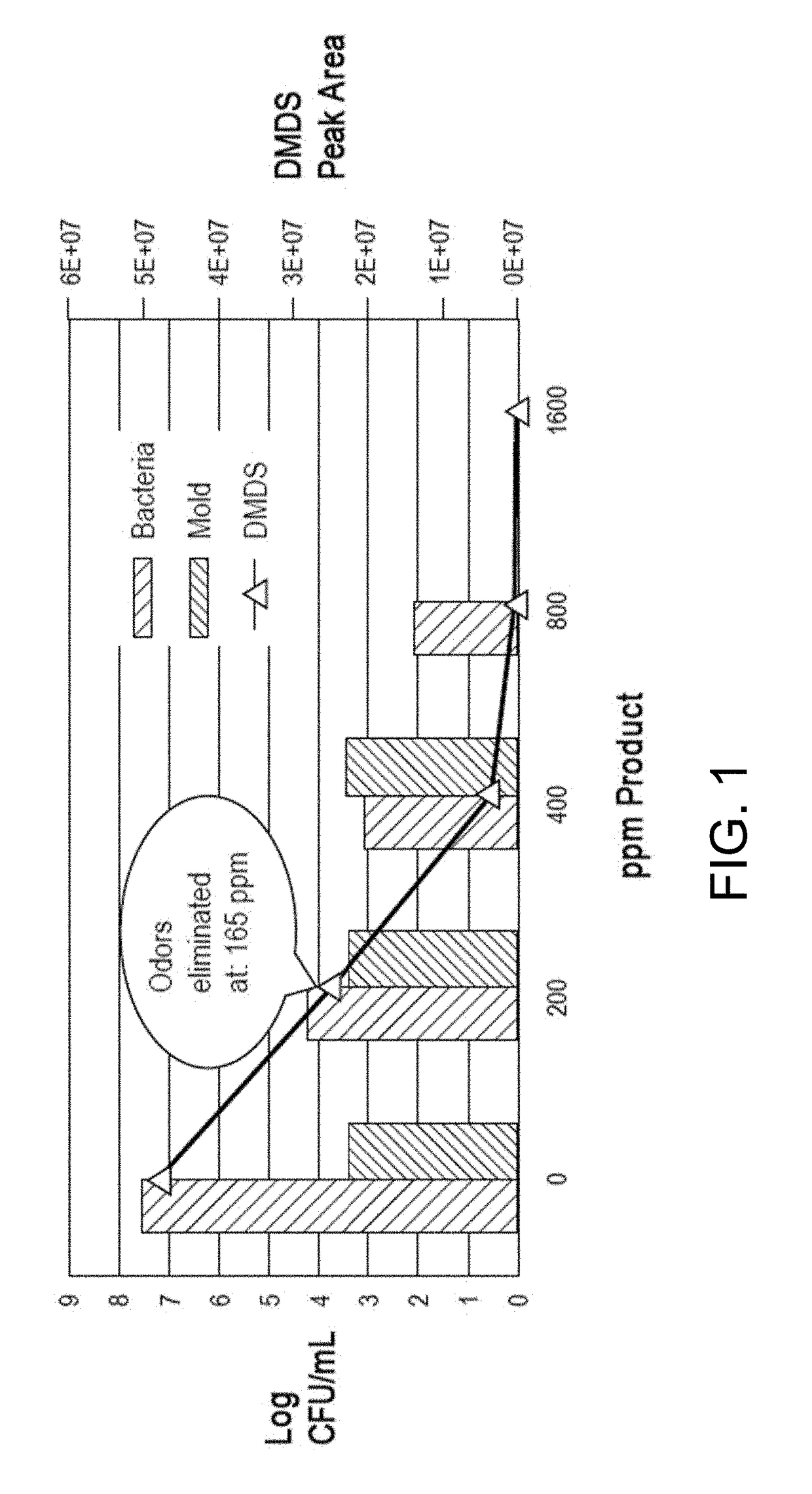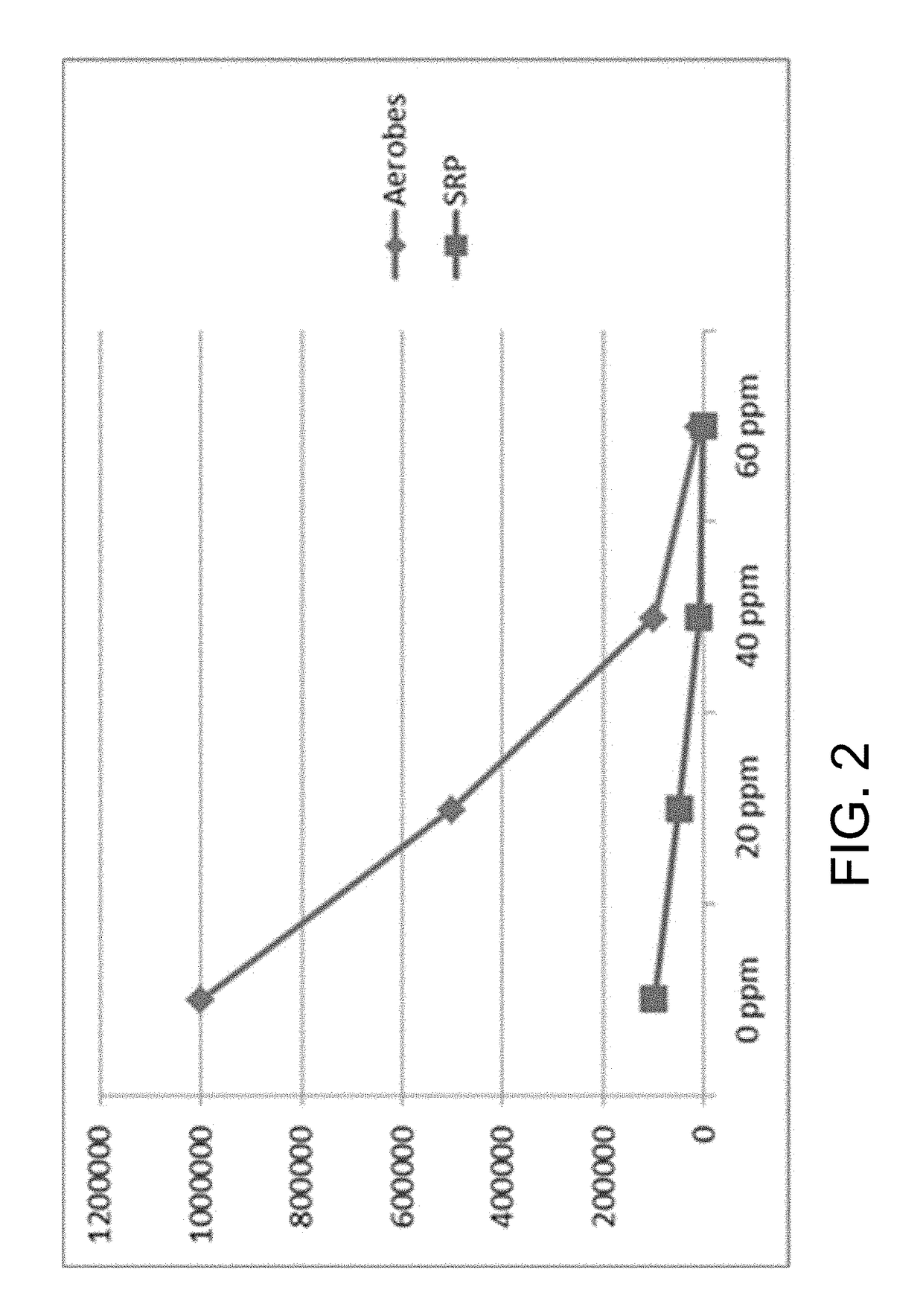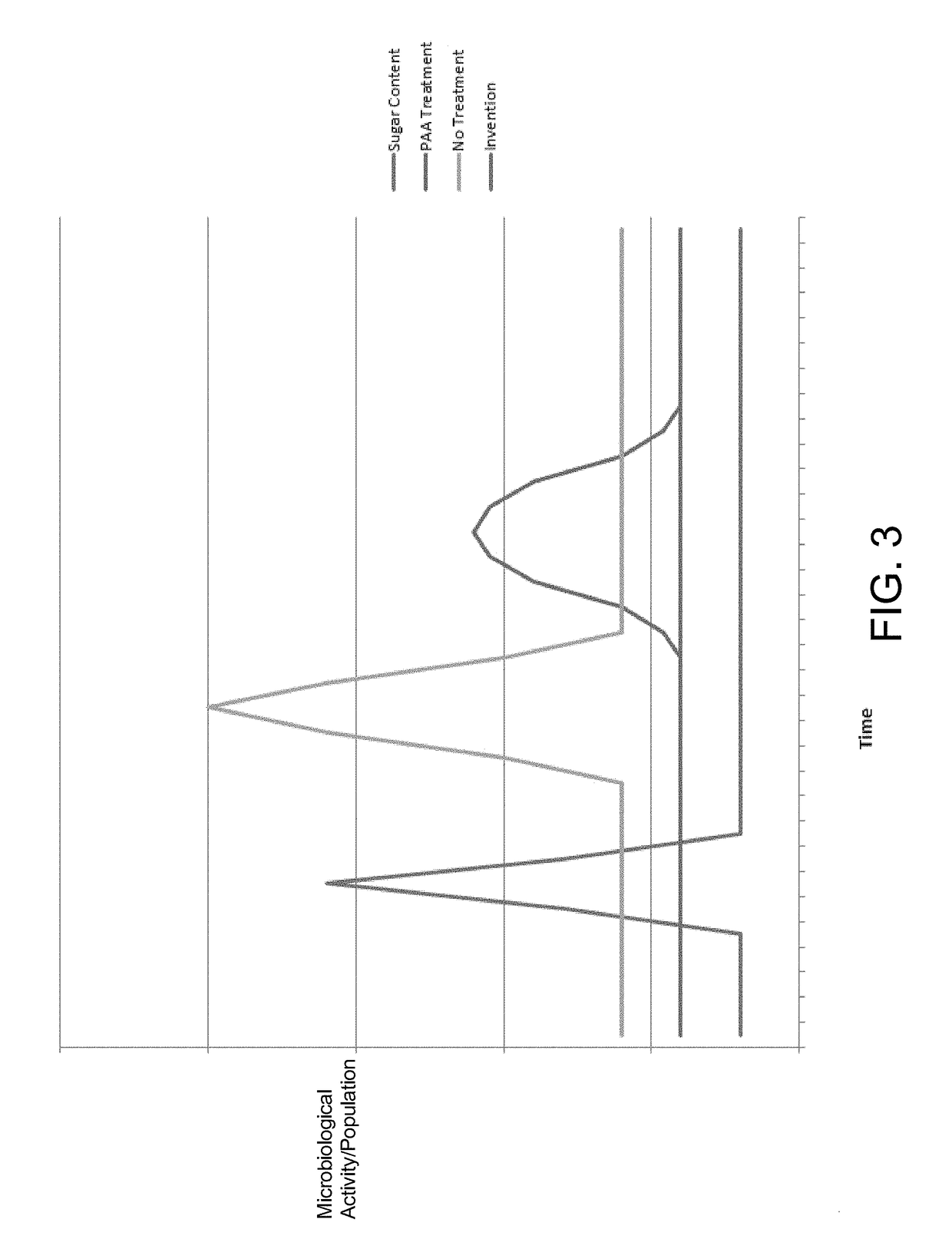Reduction of hydrogen sulfide and/or malodor gassing from water via the addition of peroxyacetic acid/hydrogen peroxide product
a technology of hydrogen peroxide and peroxyacetic acid, which is applied in the direction of water/sewage treatment by oxidation, biological water/sewage treatment, sustainable biological treatment, etc., can solve the problems of reducing the detection ability of other more toxic gases, affecting and affecting the quality of life of waste-consuming organisms, so as to reduce the odor released and preserve the vitality of waste-consuming organisms
- Summary
- Abstract
- Description
- Claims
- Application Information
AI Technical Summary
Benefits of technology
Problems solved by technology
Method used
Image
Examples
examples
[0071]The foregoing may be better understood by reference to the following examples, which are presented for purposes of illustration and are not intended to limit the scope of the invention.
[0072]A bench test was performed on various samples of sulfide laden wastewater taken from a covered pond at a food processing plant. The samples were allowed to sit for various periods of time and were treated with one of: nothing, a commercial odor suppressant (8314 sold by Nalco Company, Naperville, Ill.), and a PAA product (REDOXX 60 sold by Ecolab USA, St. Paul, Minn.). The effectiveness of these additives was measured over the time relative to when the additives were added by using a Hatch DR-890 sulfide meter to measure the sulfide ppm in the treated samples versus sulfide ppm in the untreated sample. As demonstrated in Table 1, at high dosages over long periods of time, both REDOXX and the commercial odor suppressant reduced sulfide level. However of the two, only REDOXX was effective at...
PUM
| Property | Measurement | Unit |
|---|---|---|
| wavelength | aaaaa | aaaaa |
| wavelength | aaaaa | aaaaa |
| nutrient content | aaaaa | aaaaa |
Abstract
Description
Claims
Application Information
 Login to View More
Login to View More - R&D
- Intellectual Property
- Life Sciences
- Materials
- Tech Scout
- Unparalleled Data Quality
- Higher Quality Content
- 60% Fewer Hallucinations
Browse by: Latest US Patents, China's latest patents, Technical Efficacy Thesaurus, Application Domain, Technology Topic, Popular Technical Reports.
© 2025 PatSnap. All rights reserved.Legal|Privacy policy|Modern Slavery Act Transparency Statement|Sitemap|About US| Contact US: help@patsnap.com



